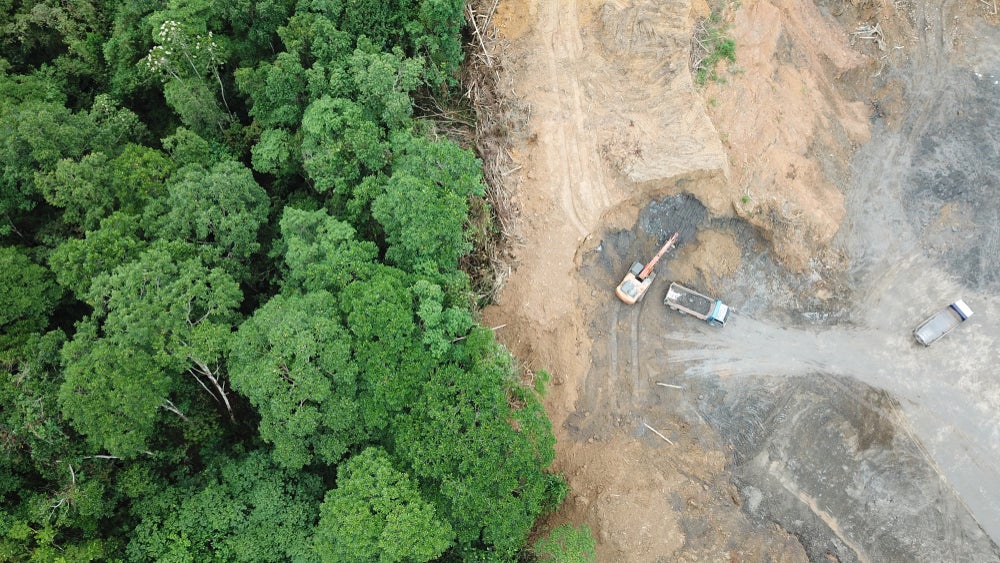The European Union’s (EU) deforestation regulation (EUDR) will come into full operational force on December 30, 2024.
This will legally require companies to prove that none of their imported products have contributed to deforestation.
While potentially creating a headache for many consumer goods companies, this law generates boundless opportunities for cleantech and Greentech startups to come to the rescue.
Emerging technologies, like AI and blockchain, are being combined with existing supply chain monitoring tools, like satellite imagery or human reporting, to verify companies’ sustainability claims. Beyond ensuring companies are EUDR compliant, these technologies will help reduce land use change, mitigating Scope 3 emissions.
EUDR and imports to the EU
Some 16 months since the legislation was passed, we are now in the final run-up to the EUDR being applied to all large and medium businesses.
Companies working with cattle, cocoa, coffee, palm oil, rubber, soy, or wood (including any derivative products) must prove to the EU that they have not contributed to deforestation or forest degradation anywhere in the world. This will primarily impact agribusinesses and food and consumer goods (FCG) companies.

US Tariffs are shifting - will you react or anticipate?
Don’t let policy changes catch you off guard. Stay proactive with real-time data and expert analysis.
By GlobalDataAgricultural commodities must become deforestation-free to be imported to the EU
The EU is limiting its involvement in global deforestation to reduce its emissions and environmental impact. Clearing forested land for food production generates massive land use change emissions. Not only does this release carbon stored by trees into the atmosphere—it also means undisturbed soil is tilled often for the first time.
This releases carbon dioxide and reduces the soil’s ability to sequester carbon in the future. According to the UN Food and Agriculture Organisation, land use change emissions make up more than 40% of total agricultural emissions. The EU is keen to reduce its Scope 3 emissions, so it is putting pressure on agribusinesses and FCG companies to do their part.
Penalties for non-compliance
There are several potential penalties for businesses that are found to be non-compliant. From fines to product confiscation and potential market restrictions, firms have serious incentives to ensure their supply chains are provably deforestation-free. But this is no easy feat.
Food supply chains are some of the most complex in the world, often spanning many countries and involving countless participants. This makes keeping track of land use change throughout the supply chain very difficult. Additionally, most agribusinesses and FCG companies operate with extremely narrow profit margins. This means some may struggle to stay afloat while also putting resources into monitoring deforestation.
An upside to the practical issues created by the EUDR, however, is that it is helping Greentech startups sell their products to some of the world’s biggest companies.
AI and blockchain can support deforestation prevention
In August 2023, Cargill partnered with Satelligence to support the monitoring of deforestation in its supply chains. Cargill, a private company, is one of the world’s largest agribusinesses and provides services across the agricultural value chain. Satelligence is a specialised geospatial monitoring start-up powered by Google’s Cloud Platform.
It uses AI to analyse satellite imagery and keep track of deforestation caused by agriculture. Once the images have been analysed, Satelligence provides clients with a full report on the state of the supply chain, with all data having been certified by Ernst & Young (EY). This technology will help Cargill achieve EUDR compliance and reach its goal of being deforestation-free globally by 2030.
Another emerging technology that could support deforestation prevention is blockchain. GainForest is a non-profit sustainability organisation that uses blockchain and satellites to monitor forests. It uses a decentralised funding system to reverse the economic incentives driving deforestation in many parts of the world.
Blockchain-powered smart contracts pay Indigenous communities to protect ecosystems, with funds only being transferred once proof of conservation is provided. This both incentivises communities to protect forests and provides immutable records of their conservation. Agribusinesses and FCG companies could invest in organisations like GainForest to prove that their supply chains are free of deforestation.









